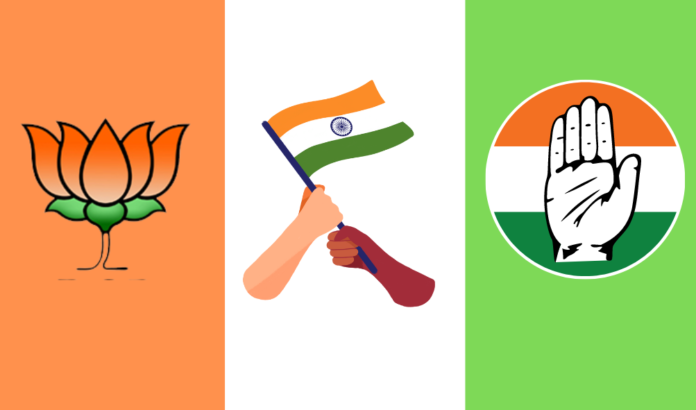Since its establishment in 1950, the ECI has been instrumental in ensuring free, fair, and transparent elections at both the national and state levels. As the custodian of electoral processes in the world’s largest democracy, the ECI holds significant responsibility for maintaining the integrity and credibility of India’s elections.
This article delves into the structure, functions, and importance of the Election Commission of India, highlighting how it has contributed to making India a robust democratic nation.
The Basic and Fundamental Structure of the Election Commission of India
The Election Commission of India is a permanent constitutional body established under Article 324 of the Indian Constitution. Initially, the ECI was a single-member body, with the Chief Election Commissioner (CEC) being its sole member. However, in 1993, two additional Election Commissioners were appointed, turning it into a multi-member body. This expansion was intended to distribute responsibilities, especially as the electoral landscape became more complex.
The Commission is headed by the Chief Election Commissioner, who is appointed by the President of India. Along with the CEC, there are usually two Election Commissioners who help in decision-making and execution of various election-related activities. The tenure of the CEC and Election Commissioners is six years or until they reach the age of 65, whichever is earlier. This tenure ensures that the officeholders can function independently, without undue pressure from political influences.
Functions and Responsibilities of the Election Commission of India
The primary mandate of the Election Commission of India is to conduct elections to the Lok Sabha, Rajya Sabha, and the State Legislative Assemblies. It also oversees elections for the President and Vice President of India. The ECI has several critical responsibilities to ensure smooth electoral processes:
1. Preparation and Revision of Electoral Rolls
The Election Commission is tasked with the preparation and continuous updating of electoral rolls, ensuring that eligible citizens can exercise their right to vote. This involves adding new voters who have attained the eligible age and removing the names of those who are deceased or ineligible. The commission also conducts regular voter registration drives, encouraging maximum participation in the electoral process.
2. Model Code of Conduct
One of the most significant contributions of the ECI is enforcing the Model Code of Conduct (MCC) during election periods. The MCC is a set of guidelines that all political parties and candidates must adhere to from the announcement of the election date until the results are declared. This code ensures a level playing field for all candidates by prohibiting practices like vote-buying, misuse of government machinery, and hate speech. Violations of the MCC are taken seriously by the ECI, and it has the authority to take action against parties or candidates that breach the code.
3. Monitoring Election Expenditure
The Election Commission monitors the expenditure of political parties and candidates during election campaigns. It sets a limit on the amount of money that can be spent by candidates in their respective constituencies. This regulation is crucial for curbing the influence of money power in elections, ensuring that candidates with financial resources do not gain an unfair advantage over others.
4. Election Scheduling and Conduct
The ECI is responsible for announcing the election dates, managing polling stations, and ensuring that polling is conducted in a smooth and orderly manner. From the deployment of polling officers to the installation of Electronic Voting Machines (EVMs) and the Voter Verifiable Paper Audit Trail (VVPAT) system, the ECI oversees the entire electoral process. This logistical effort, especially in a country as large and diverse as India, is a massive undertaking and is often cited as a global model for conducting large-scale elections.
5. Dispute Resolution
The ECI also acts as a quasi-judicial body in resolving disputes related to elections, including matters concerning disqualification of candidates and other election-related complaints. Its decisions in such cases are considered final and binding, underscoring its role as an impartial authority in the electoral process.
The Importance of the Election Commission in a Democratic Setup
The Election Commission of India is a bulwark of Indian democracy. Its primary objective is to ensure that elections are conducted in a manner that reflects the will of the people. Here are some key ways in which the ECI contributes to the democratic framework:
1. Ensuring Free and Fair Elections
The ECI has consistently worked to guarantee free and fair elections. Its commitment to maintaining transparency in electoral processes enhances public trust in the democratic system. The use of technology, like EVMs and VVPATs, has significantly reduced the chances of electoral fraud, making elections more reliable and efficient.
2. Promoting Electoral Awareness
The ECI actively engages in voter education initiatives, such as the Systematic Voters’ Education and Electoral Participation (SVEEP) program, to increase voter turnout and promote informed voting. By conducting awareness campaigns, especially in rural areas and among marginalized communities, the ECI ensures that every citizen is empowered to participate in the electoral process.
3. Preventing Malpractices
Through the implementation of the MCC and the strict monitoring of election expenditures, the ECI helps curb malpractices that could compromise the integrity of elections. It ensures that elections are not just a contest of financial or political power, but a reflection of the people’s true choice.
Challenges and the Road Ahead
Despite its remarkable achievements, the ECI faces challenges, such as managing the logistics of conducting elections in a country with over 900 million eligible voters, tackling fake news and misinformation, and ensuring compliance with the MCC in an age of social media.
Looking ahead, the ECI will need to continuously innovate and strengthen its infrastructure to deal with these emerging challenges. By leveraging technology, enhancing voter education, and maintaining its impartiality, the Election Commission can continue to be the guardian of India’s democratic process.


